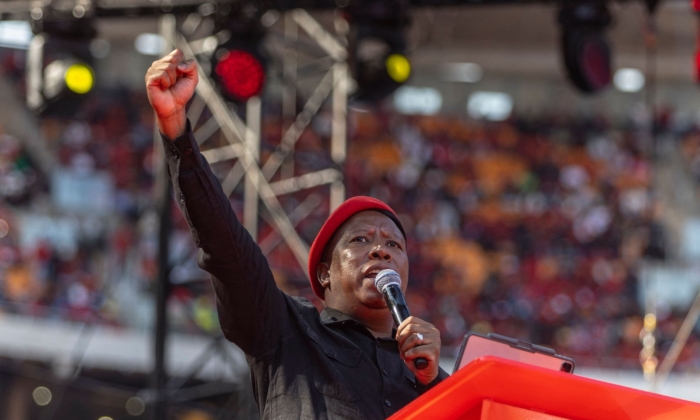Opinion polls suggest that the ruling ANC may have to form a coalition with the radical leftist Economic Freedom Fighters, as South Africa heads into an election on May 29. This shift towards coalition politics is expected to limit the ANC’s policy-making capabilities and bring more instability to the country’s economy. The ANC’s long-standing grip on power has been marred by corruption, mismanagement, and service delivery failures, leading to a decline in its popularity. If the ANC’s support drops below a certain threshold, it may have to consider partnering with the EFF, a party that advocates for extreme policies such as the nationalization of private businesses and the redistribution of wealth. However, experts warn that implementing these policies could have severe consequences for the economy, potentially leading to investor flight and turning the country into a failed state.
Julius Malema, leader of the Economic Freedom Fighters (EFF) in South Africa, has been known for his strong stance against white citizens in the country, emphasizing that Africa belongs to black people. He has been accused of inciting violence, racism, and hate speech against white citizens, who make up a small percentage of the population.
Malema’s controversial statements have sparked debates on land ownership and redistribution, with calls for expropriation without compensation of unproductive land owned by white farmers. He envisions a system where the government owns all land and farmers produce food on behalf of the state.
Despite his rhetoric about giving the country’s riches to the poor, Malema has faced allegations of funding his lavish lifestyle with funds meant to benefit the less fortunate. Critics argue that the EFF relies heavily on Malema’s charisma and lacks a strong party structure beyond him.
Despite the controversies surrounding him, Malema remains confident in his political ambitions, stating that he believes he will eventually become president of South Africa.
Please rewrite this sentence.
Source link





